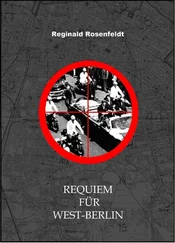Isaiah Berlin - Russian Thinkers
Здесь есть возможность читать онлайн «Isaiah Berlin - Russian Thinkers» весь текст электронной книги совершенно бесплатно (целиком полную версию без сокращений). В некоторых случаях можно слушать аудио, скачать через торрент в формате fb2 и присутствует краткое содержание. Год выпуска: 0101, Жанр: Старинная литература, на русском языке. Описание произведения, (предисловие) а так же отзывы посетителей доступны на портале библиотеки ЛибКат.
- Название:Russian Thinkers
- Автор:
- Жанр:
- Год:0101
- ISBN:нет данных
- Рейтинг книги:3 / 5. Голосов: 1
-
Избранное:Добавить в избранное
- Отзывы:
-
Ваша оценка:
- 60
- 1
- 2
- 3
- 4
- 5
Russian Thinkers: краткое содержание, описание и аннотация
Предлагаем к чтению аннотацию, описание, краткое содержание или предисловие (зависит от того, что написал сам автор книги «Russian Thinkers»). Если вы не нашли необходимую информацию о книге — напишите в комментариях, мы постараемся отыскать её.
Russian Thinkers — читать онлайн бесплатно полную книгу (весь текст) целиком
Ниже представлен текст книги, разбитый по страницам. Система сохранения места последней прочитанной страницы, позволяет с удобством читать онлайн бесплатно книгу «Russian Thinkers», без необходимости каждый раз заново искать на чём Вы остановились. Поставьте закладку, и сможете в любой момент перейти на страницу, на которой закончили чтение.
Интервал:
Закладка:
indeed virtually invent the conception of the party as a group of
professional conspirators with no private lives, obeying a total discipline
-the core of the 'hard' professionals as against mere"sympathisers and
fellow-travellers; but this sprang from the specific situation that
obtained in tsarist Russia, and the necessity and conditions for
effective conspiracy, and not from belief in hierarchy as a fonn of
life desirable or even tolerable in itself. Nor did the conspirators justify
their acts by appealing to a cosmic process which sanctified their every
act, since they believed in freedom of human choice and not in
determinism. The later Leninist conception of the revolutionary party
and its dictatorship, although historically it owed much to these
trained martyrs of an earlier day, sprang from a very different outlook.
The young men who poured into the villages during the celebrated
summer of 1 874 only to meet with non-comprehension, suspicion,
and often outright hostility on the part of the peasants, would have
been profoundly astonished and indignant if they had been told that
they were to look upon themselves as the sacred instruments of history,
and that their acts were therefore to be judged by a moral code
different from that common to other men.
The populist movement was a failure. 'Socialism bounced off people
like peas from a wall,' wrote the celebrated terrorist Kravchinsky
to his fellow-revolutionary Vera Zasulich in 1 876, two years after
the original wave of enthusiasm had died down. 'They listen to our
people as they do to the priest' - respectfully, without understanding,
without any effect upon their actions.
There is noise in the capitals
The prophets thunder
A furious war of words is waged
But in the depths, in the heart of Russia,
There all is still, there is ancient peace.
232

RU SSIAN P O P U L I S M
These lines by Nekrasov convey the mood of frustration which
followed the failure of the sporadic effons made by the revolutionary
idealists in the late 6os and early 70s, peaceful propagandists and
isolated terrorists alike-of whom Dostoevsky painted so violent a
picture in his novel The Possessed. The government caught these men,
exiled them, imprisoned them, and by its obstinate unwillingness to
promote any measures to alleviate the consequences of an · inadequate
land reform drove liberal opinion towards sympathy with the revolutionaries. They felt that public opinion was on their side, and finally resorted to organised terrorism. Yet their ends always remained
moderate enough. The open letter which they addressed to the new
Emperor in r 881 is mild and liberal in tone. 'Terror', said the celebrated revolutionary Vera Figner many years later, 'was intended to create opportunities for developing the faculties of men for service to
society.' The society for which violence was to blast the way was to
be peaceful, tolerant, decentralised and humane. The principal enemy
was still the state.
The wave of terrorism reached its climax with the assassination of
Alexander II in r 88 1 . The hoped-for revolution did not break out.
The revolutionary organisations were crushed, and the new Tsar
decided upon a policy of extreme repression. In this he was, on the
whole, supported by public opinion, which recoiled before the
assassination of an Emperor who had, after all, emancipated the
peasants, and was said to have been meditating other liberal measures.
The most prominent leaders of the movemen.t were executed or exiled ;
lesser figures escaped abroad, and the most gifted of those who were
still free- Plekhanov and Aksel rod-gradually moved towards Marxism.
They felt embarrassed by Marx's own concession that Russia could in
principle avoid passing through a capitalist stage even without the aid
of a communist world revolution -a thesis which Engels conceded far
more grudgingly and with qualifications-and maintained that Russia
had in fact already entered the capitalist stage. They declared that
since the development of capitalism in Russia was no more avoidable
than it had been in its day in the west, nothing was to be gained by
averting one's face from the 'iron' logic of history, and that for these
reasons, so far from resisting industrialisation, socialists should encourage it, indeed profit by the fact that it, and it alone, could breed the army of revolutionaries which would be sufficient to overthrow the
capitalist enemy-an army to be formed out of the growing city proletariat, organised and disciplined by the very conditions of its labour.
,,
233
R U S S IAN T H INKERS
The vast leap forward in industrial development made by Russia
in the I 89os seemed to support the Marxist thesis. It proved attractive
to revolutionary intellectuals for many reasons: because it claimed to
be founded on a scientific analysis of the laws of history which no
society could hope to evade; because it claimed to be able to prove
that, although, as the pattern of history inexorably unfolded itself,
much violence, misery, and injustice were bound to occur, yet the
story would have a happy ending. Hence the conscience of those who
felt guilty because they acquiesced in exploitation and poverty, or at
any rate because they did not take active-that is, violent- steps to
alleviate or prevent them, as populist policy had demanded, felt
assuaged by the 'scientific' guarantee that the road, covered though it
might be with the corpses of the innocent, led inevitably to the gates
of an earthly paradise. According to this view, the expropriators
would find themselves expropriated by the sheer logic of human
development, although the course of history might be shortened, and
the birth-pangs made easier, by conscious organisation, and above all
an increase in knowledge (that is, education) on the part of the workers
and their leaders. This was particularly welcome to those who, understandably reluctant to continue with useless terrorism which merely led to Siberia or the scaffold, now found doctrinal justification for
peaceful study and the life of ideas, which the intellectuals among them
found far more congenial than bomb-throwing.
The heroism, the disinterestedness, the personal nobility of the
populists were often admitted by their Marxist opponents. They were
regarded as worthy forerunners of a truly rational revolutionary party,
and Chernyshevsky was sometimes accorded an even higher status and
was credited with insights of genius-an empirical and unscientific,
but instinctively correct, approach to truths of which only Marx and
Engels could provide the demonstration, armed as they were with the
instrument of an exact science to which neither Chernyshevsky, nor
any other Russian thinker of his day, had yet attained. Marx and
Engels grew to be particularly indulgent to the Russians: they were
praised for having done wonders for amateurs, remote from the west
and using home-made tools. They alone in Europe had, by I 88o,
created a truly revolutionary situation in their country; nevertheless
it was made clear, particularly by Kautsky, that this was no substitute
for professional methods and the use of the new machinery provided
by scientific socialism. Populism was written off as an amalgam of
unorganised moral indignation and Utopian ideas in the muddled
Читать дальшеИнтервал:
Закладка:
Похожие книги на «Russian Thinkers»
Представляем Вашему вниманию похожие книги на «Russian Thinkers» списком для выбора. Мы отобрали схожую по названию и смыслу литературу в надежде предоставить читателям больше вариантов отыскать новые, интересные, ещё непрочитанные произведения.
Обсуждение, отзывы о книге «Russian Thinkers» и просто собственные мнения читателей. Оставьте ваши комментарии, напишите, что Вы думаете о произведении, его смысле или главных героях. Укажите что конкретно понравилось, а что нет, и почему Вы так считаете.










